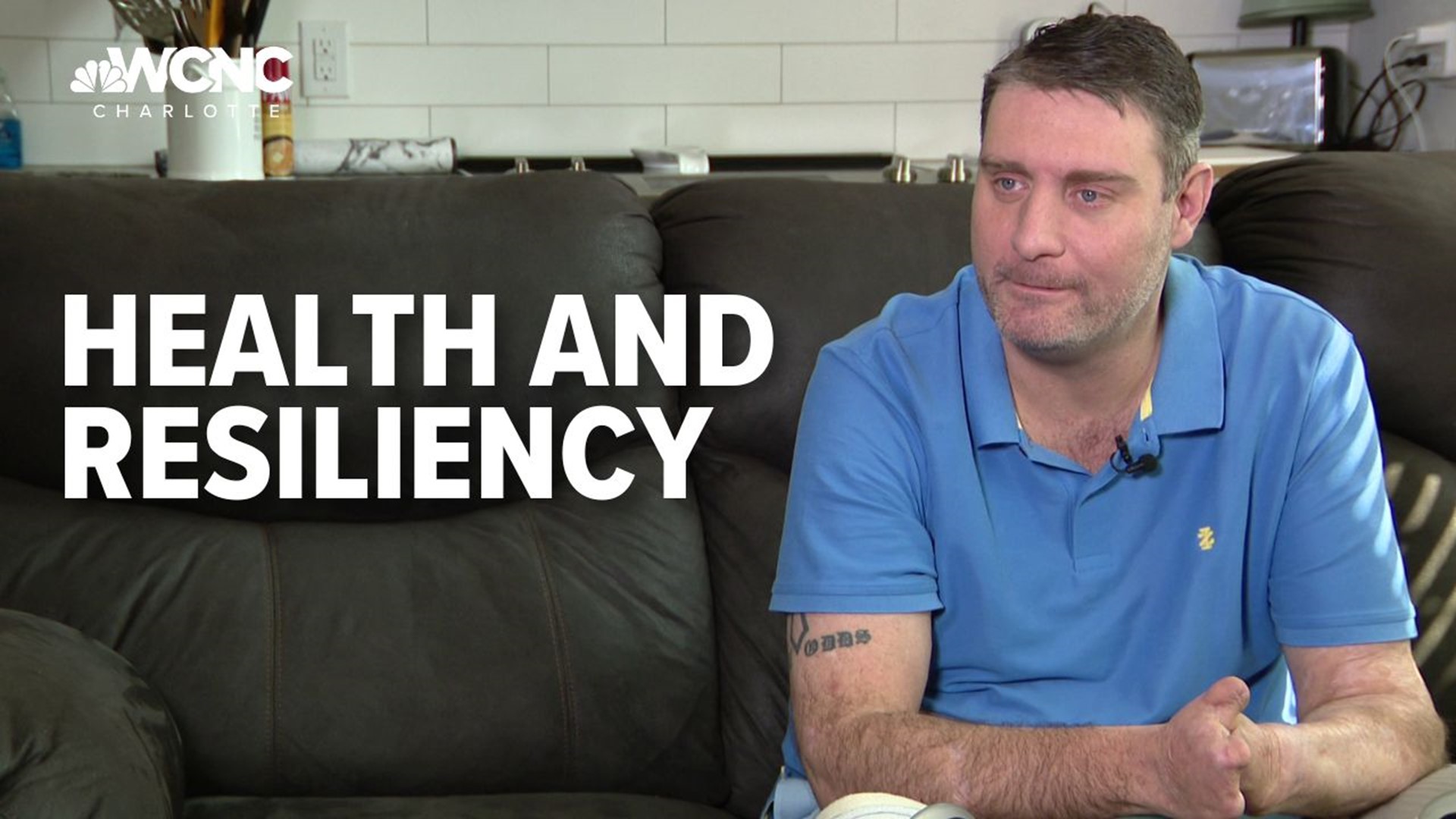MATTHEWS, N.C. — John Kach was a 19-year-old college freshman and basketball star at Salve Regina University in Rhode Island when his life changed forever.
Kach now lives in Matthews, North Carolina after being recruited by Ford Motor Company two years ago.
At 42 years old, he told WCNC's Jane Monreal that life is as good as it gets.
"I have a wonderful girlfriend, a great career," Kach said. "My family's still there supporting me. I'm really still that same person from that documentary."
The 2000 documentary, "Coming Home the John Kach Story," produced by Mary Plansky for NECN, tells the story of a young man's resilience and the strength of his family, after a call from the doctor no parent wants.
Paige Kach, John's mother, remembered talking to the doctor at Newport Hospital.
"He's going to be OK, right? [The doctor] kept saying, 'He's a very sick boy. Please get here as soon as you can.'"
She also shared in the documentary that she felt panic-stricken.
"I remember putting the phone down and just falling to the ground and saying, 'Oh my God, please,'" Kach said. "What could this be? What are they talking about?"
Doctors were talking about a rare but vicious strain of meningitis. The bacterial infection was quickly attacking John's organs.
Staff transferred him to Rhode Island Hospital where he was then put into a drug-induced coma. During that time, his kidneys shut down and a lung collapsed.
His mother visited him in his room.
"If you can't do this, you can go, and I will understand," she recalled. But if you stay, we will fight this as a family. We can do this. And I guess that's what I've held onto."
Kach awoke after six weeks, but as an amputee below the knees and most of both hands.
Doctors explained that the clots were caused by meningitis resulting in gangrene.
"At first when I went through everything, it was the 'why me's,'" Kach said from his Matthews home. "Now I look at it and say, rather it be me then someone else, because I know I can handle this and get through all of this. It is a little tougher now with the kidney. It's harder this time than the last time to find somebody."
Kach learned that kidney failure was something that could happen once he recovered. His mother ended up giving him one of hers in 2013.
His more recent setback was contracting COVID-19 last year which lasted for a while.
"On the kidney side, they kind of didn't really recover," Kach said. "So in February, I went through kidney failure and had to be put on dialysis."
His mother has been trying to make things easier ever since.
"I've been doing things I never did, such as cooking. That's my husband's forte. So now I'm cooking and shopping and that kind of thing."
She said there are a lot of unknowns at this point because she was already a donor.
"Once you have a foreign organ, your antibodies kick up. Things kick up medically. Things become more difficult. At 42, to be on dialysis, it's just way too young to be filled with boxes of solution," his mother said. "It would not be as hard if he had his fingers. It's just a little too hard. So we're back to square one I guess."
If you're interested in seeing if you're a potential donor, the North Carolina transplant center has five transplant centers in the state. The first step is to fill out this simple medical history form, which will start the referral process.
Contact Jane Monreal at jmonreal@wcnc.com and follow her on Facebook, Twitter and Instagram.

